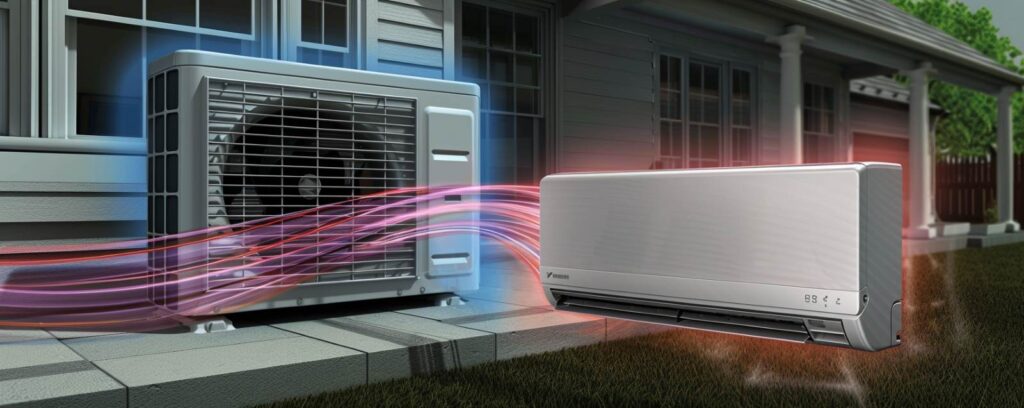As the cost of higher education continues to rise, finding ways to fund your training has become increasingly important for students pursuing careers in the skilled trades. For those interested in heating, ventilation, air conditioning, and refrigeration (HVACR), scholarships can provide crucial financial support to help reduce the overall cost of education. By securing HVAC scholarships, students can focus on their studies without the heavy burden of tuition expenses.
Whether you are just starting your search or are already enrolled in an HVAC program, these scholarships can make a significant difference in covering the cost of tuition, books, and tools. With the availability of various national, regional, and even trade-specific scholarship opportunities, now is a great time to explore how these awards can help you take the next step toward a successful career in HVACR.
In this guide, we’ll take a closer look at the growing HVAC industry, the top HVAC scholarships for the 2024-2025 academic year, and other essential tips for paying for your HVAC training.
The Growing Demand for Skilled HVAC Technicians
The HVAC industry plays a critical role in keeping homes, businesses, and industrial facilities comfortable and functional. From controlling indoor climate to ensuring that refrigeration systems work efficiently, HVAC professionals are essential across a range of sectors. As the demand for energy-efficient systems continues to grow, so does the need for skilled HVAC technicians. According to the U.S. Bureau of Labor Statistics (BLS), employment of HVAC technicians is projected to grow by 9% from 2023 to 2033, adding thousands of jobs across the United States.
For those entering the field, training programs are designed to cover essential technical skills such as installation, maintenance, and repair of heating, cooling, and refrigeration systems. With such a broad skill set, HVAC technicians can find employment in various environments, including residential buildings, hospitals, schools, and large commercial facilities.
Given the growing demand for HVAC services, it’s no surprise that more students are looking to enroll in HVACR training programs. However, the costs of these programs can add up. Fortunately, a wide range of HVAC scholarships is available to help aspiring technicians reduce the financial burden and start their careers with confidence.
Some of the Top HVAC Scholarships for 2024-2025
Scholarships provide vital financial assistance to students pursuing HVACR training, helping to cover tuition, books, and tools. Below are some of the top HVAC scholarships available for the 2024-2025 academic year:
Rees Scholarship Foundation
Overview: Offered by the Air-Conditioning, Heating, and Refrigeration Institute (AHRI), the Rees Scholarship provides financial support to students pursuing a career in the HVACR industry.
Eligibility: Students enrolled in an HVACR program at an accredited school.
Award Amount: $2,500
American Society of Heating, Refrigerating and Air-Conditioning Engineers (ASHRAE) Scholarships
Overview: ASHRAE offers several scholarships to students studying HVAC-related fields.
Eligibility: Students pursuing an associate, bachelor’s, or graduate degree in HVAC or a related field.
Award Amount: Ranges from $3,000 to $12,500.
Mike Rowe Works Foundation Work Ethic Scholarship
Overview: Sponsored by the Mike Rowe Works Foundation, this scholarship helps students pursuing careers in skilled trades, including HVAC. The foundation emphasizes the importance of work ethic and hands-on skills.
Eligibility: Students enrolled in HVAC or other skilled trade programs who demonstrate a strong work ethic.
Award Amount: Varies.
PHCC Educational Foundation Scholarships
Overview: The Plumbing-Heating-Cooling Contractors (PHCC) Educational Foundation offers scholarships for students pursuing careers in HVACR and plumbing.
Eligibility: Students enrolled in HVAC or plumbing programs at accredited institutions.
Women in HVACR Scholarships
Overview: This scholarship encourages women to pursue careers in the HVACR industry. Women in HVACR offers financial assistance to students attending HVACR training programs.
Eligibility: Open to female students pursuing HVACR education.
Award Amount: $5,000
EGIA Foundation Scholarship
Overview: The Electric & Gas Industries Association (EGIA) Foundation offers scholarships to students pursuing HVAC degrees and certifications.
Eligibility: Students pursuing HVAC education at an accredited institution.
Award Amount: $2,500.
These HVAC scholarships can significantly reduce the financial burden on students by covering tuition and other educational expenses. Prospective students should carefully review each scholarship’s eligibility criteria and deadlines before applying.
HVAC Program Overview
HVAC training programs are designed to equip students with the technical skills and knowledge necessary to enter the field as qualified technicians. These programs offer a variety of options in terms of provider types, program formats, and areas of specialization. Here’s an overview of what students can expect from HVAC training programs.
Types of Program Providers
When choosing an HVAC training program, students have several types of providers to consider, each offering distinct advantages:
- Community Colleges: Community colleges offer associate degrees and technical certificates in HVACR. These programs often include a blend of classroom instruction and hands-on experience, preparing students for a wide range of HVAC roles. Community colleges tend to be more affordable and often offer flexible scheduling options.
- Trade Schools: Specialized trade schools provide focused, hands-on training designed to prepare students for immediate entry into the HVACR workforce. Trade schools typically offer shorter, more intensive programs than community colleges, often resulting in a diploma or certificate within a year.
- Online Platforms: For students who need flexibility, online HVAC programs offer coursework that can be completed at their own pace. While the core theoretical content can be delivered online, most programs require in-person labs or workshops to gain practical, hands-on experience.
Formats of HVAC Training Programs
HVAC programs are offered in various formats to accommodate the diverse needs of students:
- In-Person Training: Traditional in-person programs are typically offered by community colleges and trade schools. These programs involve classroom instruction combined with hands-on training in labs, where students work with HVAC equipment to develop real-world skills.
- Online or Hybrid Programs: Online programs allow students to complete theoretical coursework remotely, with practical components either completed in-person at designated times or through hybrid formats that mix online learning with scheduled in-person labs. These formats are ideal for students balancing work, family, or other commitments.
Specializations and Curriculum Examples
Within HVAC training programs, students have the option to specialize in various areas depending on their interests and career goals. Some common specializations include:
- Refrigeration: Focuses on the installation and repair of refrigeration systems used in commercial settings, such as grocery stores and hospitals.
- Commercial HVAC: Specializes in the design, installation, and maintenance of large-scale heating and cooling systems for commercial buildings.
- System Design and Energy Efficiency: Trains students to design HVAC systems with a focus on energy efficiency and sustainable building practices.
Curriculum examples may include courses such as:
- Electrical Systems for HVAC
- Refrigeration Cycles and Components
- Airflow and Duct Design
- Environmental Controls and Automation
These varied program options allow students to tailor their education to their specific interests within the HVAC field, giving them the skills needed for a successful career.
Tips for Paying for HVAC Training (Beyond Scholarships)
While HVAC scholarships are an excellent way to reduce the cost of education, students have additional options to help cover their training expenses. These financial resources, combined with scholarships, can significantly ease the financial burden for those pursuing a career in HVACR.
Federal Financial Aid (FAFSA)
The Free Application for Federal Student Aid (FAFSA) is a crucial step for any student seeking financial assistance. By completing the FAFSA, students may qualify for federal grants, work-study opportunities, and low-interest loans. Federal Pell Grants, which do not need to be repaid, are awarded based on financial need and can cover a significant portion of tuition costs for eligible students enrolled in accredited HVAC programs.
Grants and State-Specific Aid
In addition to federal aid, many states offer grants and financial assistance to students pursuing education in high-demand fields like HVAC. These state-funded programs often come in the form of need-based or merit-based grants. Be sure to check with your state’s department of education to see what specific aid programs are available for HVAC students.
- State-Specific Programs: Certain states offer specialized grants for students enrolled in vocational or technical programs. For example, some states have initiatives aimed at encouraging students to enter high-demand fields, including HVACR.
Employer Sponsorships
Many employers in the HVAC industry are willing to sponsor students who are pursuing HVAC training, especially in high-demand areas like commercial refrigeration or energy-efficient system design. In return for this financial assistance, employers may ask for a commitment to work for them upon completion of the program. These sponsorships can cover tuition costs, training materials, and even certification fees.
- Union Apprenticeships: HVAC apprenticeships offered through unions often include financial support for training while students gain hands-on work experience. Apprenticeships not only offer on-the-job training but also a wage while you learn, making this an attractive option for those looking to enter the HVAC field with minimal upfront costs.
Payment Plans and Financial Aid from Schools
Many trade schools and community colleges offer in-house financial aid options or payment plans for students enrolled in HVAC programs. These flexible payment arrangements allow students to break down their tuition costs into more manageable monthly payments over the duration of their program.
Frequently Asked Questions (FAQ)
How do I apply for HVAC scholarships?
To apply for HVAC scholarships, you should first research available scholarships from various sources such as trade associations, foundations, and educational institutions. Once you’ve identified eligible scholarships, follow each application process carefully. This typically involves submitting an online application, providing transcripts, letters of recommendation, and sometimes a personal statement or essay. Make sure to meet all deadlines and double-check the eligibility requirements before applying.
Can I receive more than one scholarship for HVAC training?
Yes, many students can receive multiple HVAC scholarships if they meet the eligibility criteria for each award. It’s common for students to combine national, state, and institution-specific scholarships to maximize their financial aid. Be sure to check with each scholarship provider about any restrictions on holding multiple awards.
Are there scholarships available for online HVAC programs?
Yes, many scholarships are available to students enrolled in accredited online HVAC programs. Whether you’re attending a fully online program or a hybrid one that combines online coursework with in-person labs, you can still qualify for most HVAC scholarships as long as the program is accredited.
Do I need to maintain a certain GPA to keep an HVAC scholarship?
Many HVAC scholarships require recipients to maintain a minimum GPA to continue receiving funds. This GPA requirement varies depending on the scholarship provider, but it’s common for scholarships to expect students to maintain at least a 2.5 or 3.0 GPA throughout their studies. Always review the terms of the scholarship to understand any academic requirements.
What is the typical award amount for HVAC scholarships?
The award amounts for HVAC scholarships vary widely, typically ranging from $500 to $10,000. Some scholarships, such as those offered by national foundations, provide larger awards, while smaller regional or industry-specific scholarships may offer more modest amounts. Be sure to apply for a range of scholarships to increase your chances of securing significant financial assistance.
Pursuing an HVAC Career with Scholarships
Financing your education can be a significant challenge, but with the availability of HVAC scholarships, grants, and other financial aid options, you can reduce the burden of tuition and training costs. By taking advantage of these resources, prospective HVAC students can focus on gaining the skills and certifications they need to enter a growing and in-demand field.
Whether you are just starting your HVAC journey or looking to specialize further, securing scholarships and additional funding will allow you to pursue your education with confidence. With the support of financial aid, you can take the next steps toward a rewarding and stable career in the HVACR industry.




